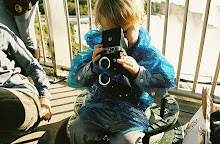
Dear Jonas,
While I was pregnant with you I read, among other things, The Tin Drum and A Personal Matter—neither of which take a comforting approach to childbirth. I read these to myself, and to you I read Proust. I liked the idea that we will probably keep reading Proust until you’re a teenager, and I couldn’t wait to sit next to your bassinet and read you to sleep. As it happens, that’s just not something you’re into yet. When I tried you looked frustrated, as if I were giving you orders you couldn’t carry out. Nonetheless, I want to read to you, so I’m trying a new strategy: poetry. At first it just seemed like a practical way to appease myself. We don’t have to worry about saving our spot or finishing a chapter. We can keep a collection in the diaper bag and start wherever we want whenever we want. I can cheat and keep reading when you fall asleep in the park, then pick up back where we left off without boring myself. If we read the same poem 10 times before we can move on to the next one, well, that’s what we should be doing anyway. I realized this is how I want you to learn how to read. Poetry makes more sense than Proust.
Your first collection is Adam Zagajewski’s Mysticism for Beginners. To get us started, I had pulled out the big blue Complete Poems of Emily Dickinson, Michael Hofmann’s Corona, Corona, and Zagajewksi. There’s a certain Gainesville pedigree to this sequence that I wasn’t really thinking about when I grabbed the books, and maybe I’ll explain that to you later. I picked up Zagajewski first simply because I haven’t read him yet, and this seems to have been a good choice. You let me read 5 poems: “A Quick Poem,” “Transformation,” “September,” “Mysticism for Beginners,” and “Anthology.” You were attentive throughout. I know you were probably just paying attention to my hair or staring at the shape of the book, but that’s not really the point. We’re starting something that, like any difficult method of study, won’t even start to make sense for years.
Here are some words from these first few poems that I like. Let’s just hold onto them for a while: garden, spider, crimson, roosters, cassock, bonfire, baroque, chestnut, sparks, swallows, herons, nightingale, scarlet.



